
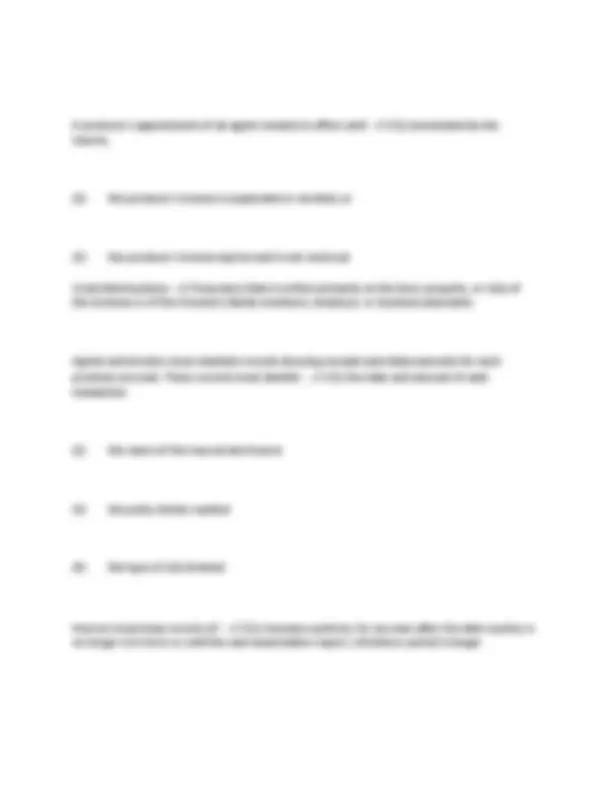
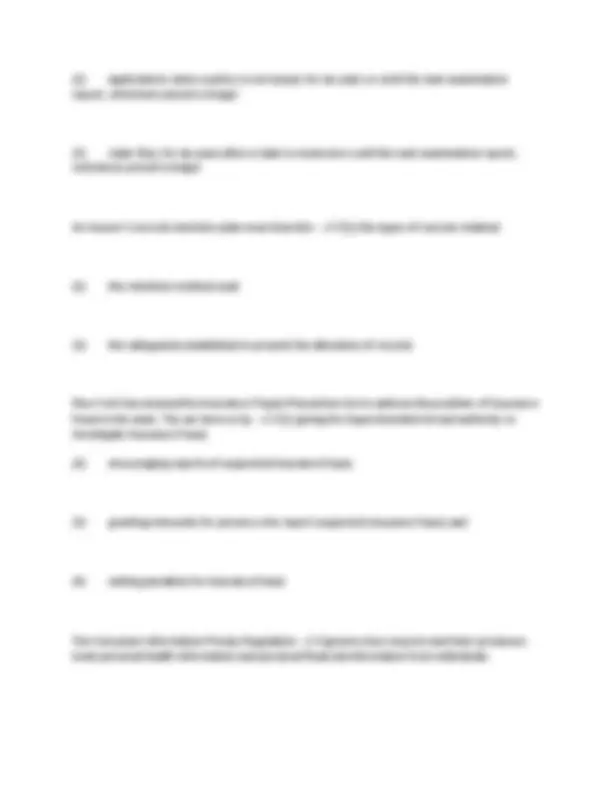
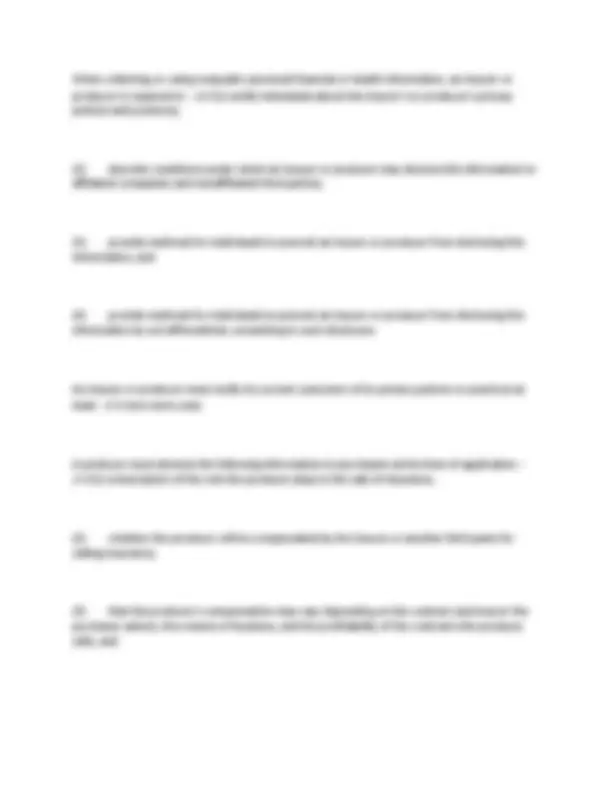
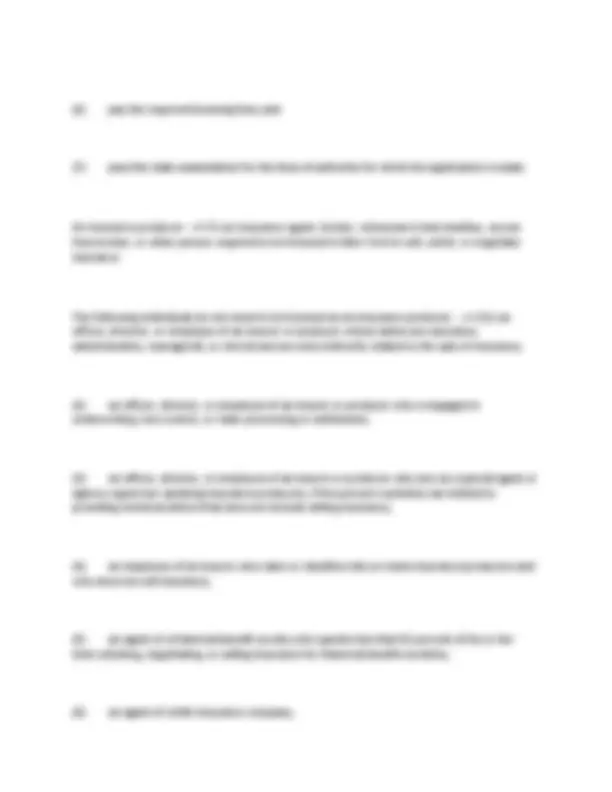
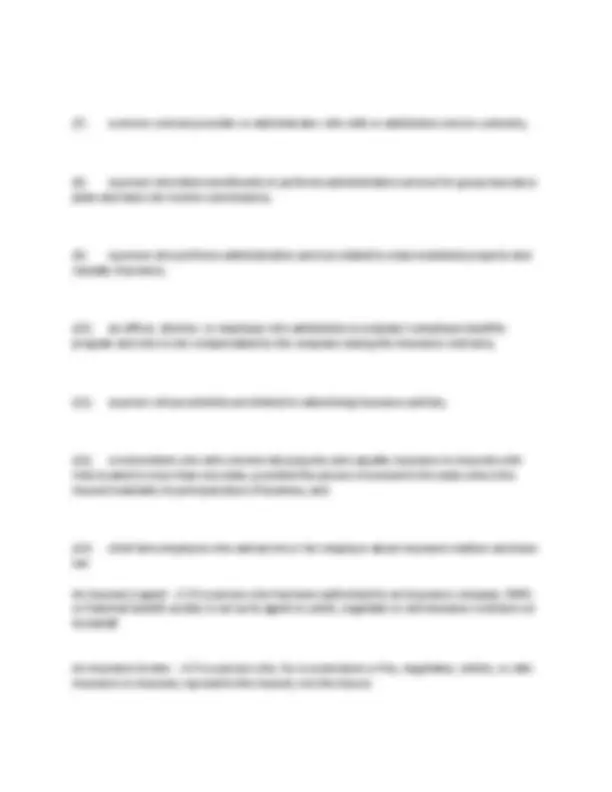
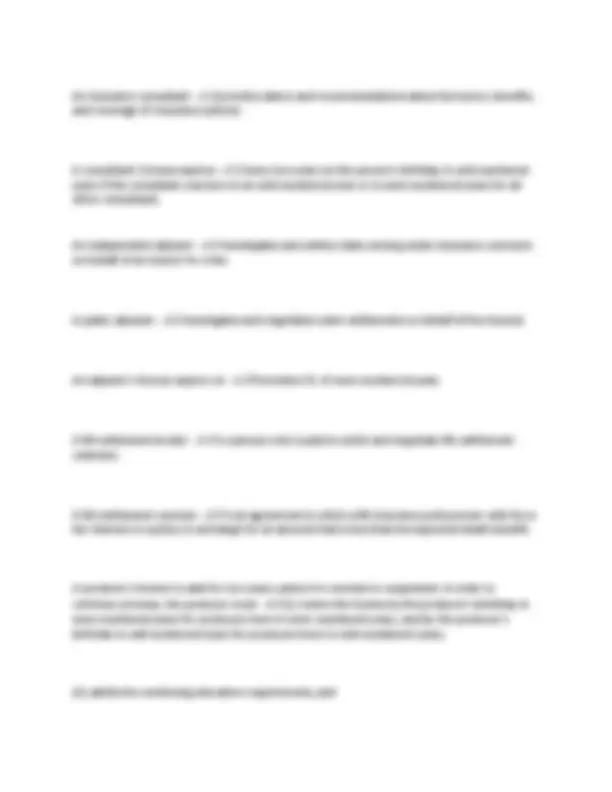
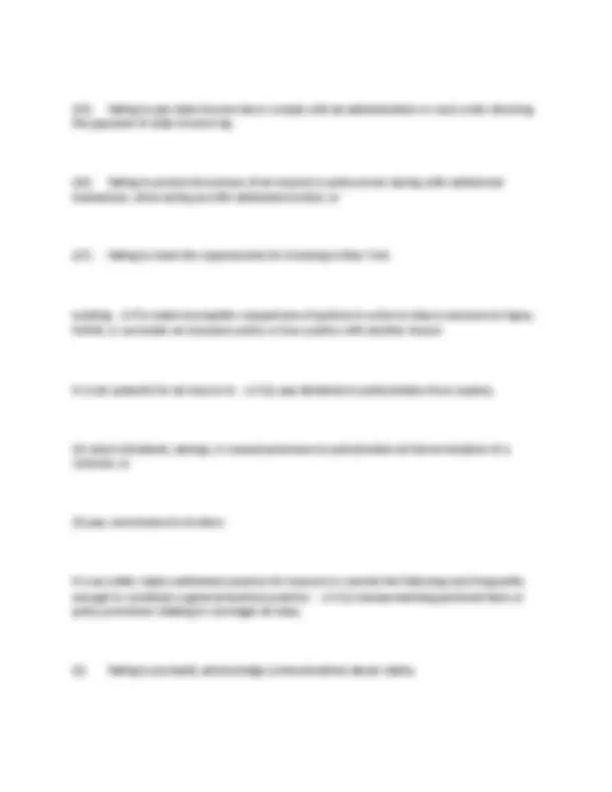
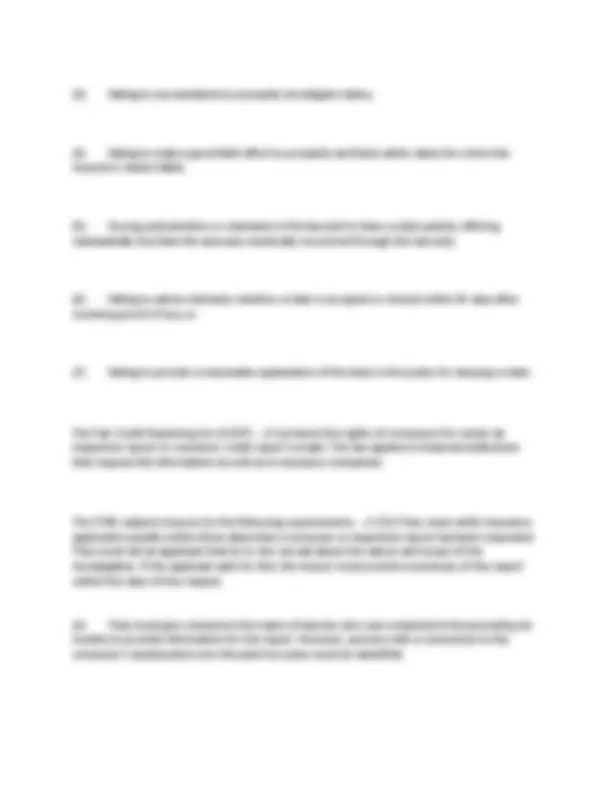
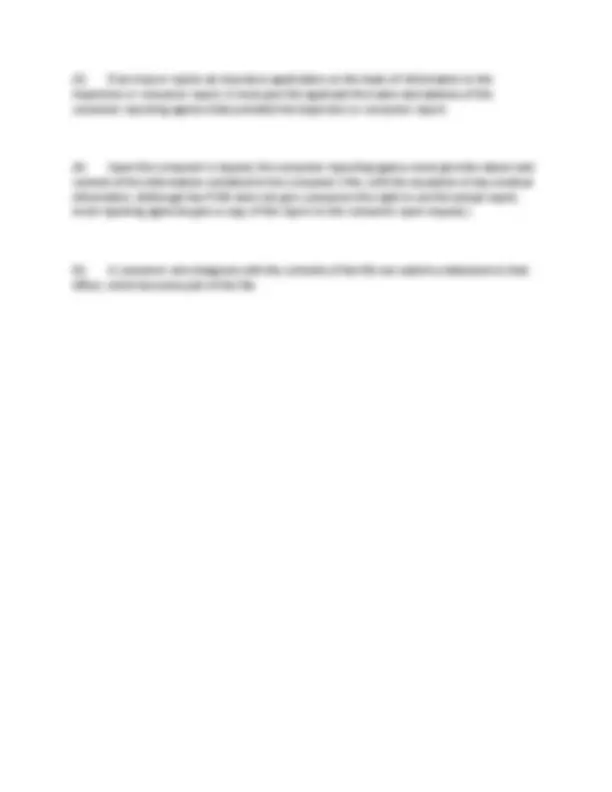


Study with the several resources on Docsity

Earn points by helping other students or get them with a premium plan


Prepare for your exams
Study with the several resources on Docsity

Earn points to download
Earn points by helping other students or get them with a premium plan
Community
Ask the community for help and clear up your study doubts
Discover the best universities in your country according to Docsity users
Free resources
Download our free guides on studying techniques, anxiety management strategies, and thesis advice from Docsity tutors
A comprehensive overview of new york's general insurance laws, focusing on key regulations and requirements for insurance producers, insurers, and consumers. It includes a series of questions and answers designed to help individuals prepare for the new york license test for general insurance. Topics such as the role of the superintendent of insurance, requirements for insurance producers and insurers, insurance fraud prevention, and consumer privacy regulations.
Typology: Exams
1 / 15

This page cannot be seen from the preview
Don't miss anything!










The Superintendent is the head of the Department of Insurance in New York. The appoints the Superintendent to a four-year term. - ✔✔governor If the Superintendent requests information during an examination or investigation and a person does not respond within days, he or she may impose a penalty of up to $500 per day (not more than $10,000 total) for each day the person fails to respond. - ✔✔ 15 If the Superintendent imposes five separate penalties against a person within five years for failing to respond to his or her inquiries, the Superintendent may levy an additional penalty of up to
. - ✔✔$50, To qualify for a certificate of authority, a mutual insurer must show that it: - ✔✔(1) maintains the required surplus to fulfill its obligations to policyholders; (2) has the required number of applications for insurance; (3) has a genuine membership list; and
(4) has received premiums from members and will issue policies within 60 days after receiving a certificate of authority.
(2) applications when a policy is not issued, for six years or until the next examination report, whichever period is longer (3) claim files, for six years after a claim is resolved or until the next examination report, whichever period is longer An insurer's records retention plan must describe: - ✔✔(1) the types of records retained (2) the retention method used (3) the safeguards established to prevent the alteration of records New York has enacted the Insurance Frauds Prevention Act to address the problem of insurance fraud in the state. The act does so by - ✔✔(1) giving the Superintendent broad authority to investigate insurance fraud; (2) encouraging reports of suspected insurance fraud; (3) granting immunity for persons who report suspected insurance fraud; and (4) setting penalties for insurance fraud. The Consumer Information Privacy Regulation - ✔✔governs how insurers and their producers treat personal health information and personal financial information from individuals.
When collecting or using nonpublic personal financial or health information, an insurer or producer is required to - ✔✔(1) notify individuals about the insurer's or producer's privacy policies and practices; (2) describe conditions under which an insurer or producer may disclose this information to affiliated companies and nonaffiliated third parties; (3) provide methods for individuals to prevent an insurer or producer from disclosing this information; and (4) provide methods for individuals to prevent an insurer or producer from disclosing this information by not affirmatively consenting to such disclosure. An insurer or producer must notify its current customers of its privacy policies or practices at least - ✔✔once every year. A producer must disclose the following information to purchasers at the time of application: - ✔✔(1) a description of the role the producer plays in the sale of insurance; (2) whether the producer will be compensated by the insurer or another third party for selling insurance; (3) that the producer's compensation may vary depending on the contract and insurer the purchaser selects, the volume of business, and the profitability of the contracts the producer sells; and
(4) insurance sold by individuals who are not required to be licensed as producers (5) policy renewals Insurers and fraternal benefit societies must file an annual statement with the Superintendent by that shows its condition at the end of the preceding year. - ✔✔March 1 Insurers are also required to file an annual financial statement within after the end of each year, along with an opinion from an independent certified public accountant regarding the insurer's financial condition. - ✔✔five months To qualify for an agent's license, an applicant must - ✔✔(1) be at least 18 years of age; (2) submit an application; (3) complete a prelicensing course of study of at least 20 hours (40 hours for a combined life and health or property and casualty agent's license); (4) be trustworthy and competent; (5) not have committed any act that is grounds for license revocation or suspension;
(6) pay the required licensing fees; and (7) pass the state examination for the lines of authority for which the application is made. An insurance producer - ✔✔is an insurance agent, broker, reinsurance intermediary, excess lines broker, or other person required to be licensed in New York to sell, solicit, or negotiate insurance. The following individuals do not need to be licensed as an insurance producer: - ✔✔(1) an officer, director, or employee of an insurer or producer whose duties are executive, administrative, managerial, or clerical and are only indirectly related to the sale of insurance; (2) an officer, director, or employee of an insurer or producer who is engaged in underwriting, loss control, or claim processing or settlement; (3) an officer, director, or employee of an insurer or producer who acts as a special agent or agency supervisor assisting insurance producers, if the person's activities are limited to providing technical advice that does not include selling insurance; (4) an employee of an insurer who rates or classifies risks or trains insurance producers and who does not sell insurance; (5) an agent of a fraternal benefit society who spends less than 50 percent of his or her time soliciting, negotiating, or selling insurance for fraternal benefit societies; (6) an agent of a title insurance company;
An insurance consultant - ✔✔provides advice and recommendations about the terms, benefits, and coverage of insurance policies. A consultant's license expires - ✔✔every two years on the person's birthday in odd-numbered years if the consultant was born in an odd-numbered year or in even-numbered years for all other consultants. An independent adjuster - ✔✔investigates and settles claims arising under insurance contracts on behalf of an insurer for a fee. A public adjuster - ✔✔investigates and negotiates claim settlements on behalf of the insured. An adjuster's license expires on - ✔✔December 31 of even-numbered years A life settlement broker - ✔✔is a person who is paid to solicit and negotiate life settlement contracts. A life settlement contract - ✔✔is an agreement in which a life insurance policyowner sells his or her interest in a policy in exchange for an amount that is less than the expected death benefit. A producer's license is valid for two years unless it is revoked or suspended. In order to continue a license, the producer must - ✔✔(1) renew the license by the producer's birthday in even-numbered years for producers born in even-numbered years, and by the producer's birthday in odd-numbered years for producers born in odd-numbered years; (2) satisfy the continuing education requirements; and
(3) submit a renewal application and pay the required fee. A producer's license must contain: - ✔✔(1) the producer's name and address (2) date of issuance (3) authorized lines of authority (4) expiration date (5) any other information required by the Superintendent The Superintendent may suspend, revoke, or refuse to continue the license of a producer, consultant, adjuster, or life settlement broker for the following reasons: - ✔✔(1) violating any insurance laws or a regulation, subpoena, or order of the Superintendent or another state's commissioner; (2) providing materially incorrect, misleading, incomplete, or untrue information in the license application; (3) misrepresentation or fraud in obtaining the license; (4) fraudulent, coercive, or dishonest practices in conducting insurance;
(15) failing to pay state income tax or comply with an administrative or court order directing the payment of state income tax; (16) failing to protect the privacy of an insured or policyowner during a life settlement transaction, when acting as a life settlement broker; or (17) failing to meet the requirements for licensing in New York. twisting - ✔✔to make incomplete comparisons of policies in order to induce someone to lapse, forfeit, or surrender an insurance policy or buy a policy with another insurer It is not unlawful for an insurer to - ✔✔(1) pay dividends to policyholders from surplus; (2) return dividends, savings, or unused premiums to policyholders at the termination of a contract; or (3) pay commissions to brokers. It is an unfair claims settlement practice for insurers to commit the following acts frequently enough to constitute a general business practice: - ✔✔(1) misrepresenting pertinent facts or policy provisions relating to coverages at issue; (2) failing to promptly acknowledge communications about claims;
(3) failing to use standards to promptly investigate claims; (4) failing to make a good faith effort to promptly and fairly settle claims for which the insured is clearly liable; (5) forcing policyholders or claimants to file lawsuits to have a claim paid by offering substantially less than the amounts eventually recovered through the lawsuits; (6) failing to advise claimants whether a claim is accepted or denied within 30 days after receiving proof of loss; or (7) failing to provide a reasonable explanation of the basis in the policy for denying a claim. The Fair Credit Reporting Act of 1970 - ✔✔protects the rights of consumers for whom an inspection report or consumer credit report is made. The law applies to financial institutions that request this information as well as to insurance companies. The FCRA subjects insurers to the following requirements: - ✔✔(1) They must notify insurance applicants (usually within three days) that a consumer or inspection report has been requested. They must tell an applicant that he or she can ask about the nature and scope of the investigation. If the applicant asks for this, the insurer must provide a summary of the report within five days of the request. (2) They must give consumers the name of anyone who was contacted in the preceding six months to provide information for the report. However, persons with a connection to the consumer's employment over the past two years must be identified.